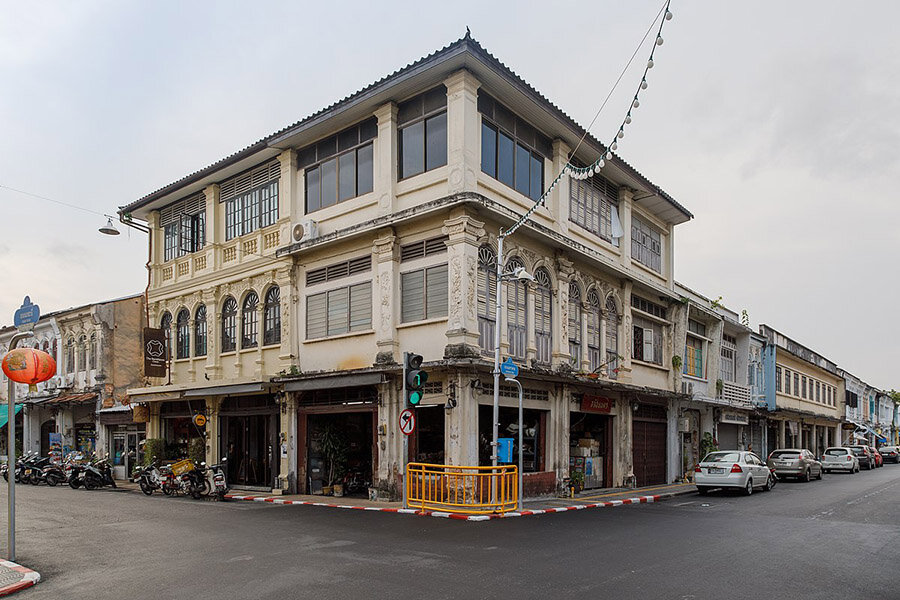Thailand’s Property Market: Tighter Checks Reduce Shadow Transactions, While Phuket, Rayong, and Samui Show Growth

Phuket, Rayong, and Samui were the only areas in Thailand where residential property transfers grew in Q1 2025. This trend emerged amid the intensified efforts of the Central Investigation Bureau (CIB) to clamp down on the widespread practice of using Thai nominees to hold properties on behalf of foreign buyers, according to the Bangkok Post.
Kamolpop Virapara, President of the Government Housing Bank and Acting Director-General of the Real Estate Information Center (REIC), stated that stricter regulations have led to a decrease in nominee ownership and contributed to a rise in legal property transactions. Many foreign buyers were previously unaware that using Thai nominees was illegal, he noted. Following new clarifications, many now prefer to register property ownership through legal channels.
“The measures have deterred both foreign buyers and Thais involved in nominee ownership from engaging in illegal activity,” Virapara said. “As a result, the number of residential property transfers increased in areas with high foreign demand in Q1.”
Since November last year, the Department of Business Development, together with the Royal Thai Police, has been conducting inspections related to nominee ownership. These efforts have reduced the proportion of hidden transactions. Q1 2025 saw an increase in registered transfers in foreign-popular provinces.
Phuket was the most active market, with the number of contracts rising by 9%. Next was Surat Thani (+6.2%), driven mainly by Samui Island, where demand for high-end properties remains strong among foreign buyers. The total value of transfers in the province saw the largest growth nationwide — up 15.1%.
Rayong ranked third, with 2,171 transactions (+3.8%). The total value of purchases rose by 2.7% to 4.58 billion baht, driven by higher demand from Chinese buyers working in the industrial sector. In 74 other provinces, there were 20,855 residential property transactions — down 11.9% year-on-year. The total value also fell by 15.4% to 37 billion baht.
In Q1 2025, the number of residential property transfers to foreigners fell slightly by 0.5% to 3,919 units, while the value declined by 9% to 16.4 billion baht. However, foreigners’ market share grew significantly. In Q1 2023, foreigners accounted for 10.7% of transactions; in Q1 2024, 16.7%; and in Q1 2025, 18%. By transaction value, the shares were 19.9%, 28.6%, and 29.3% respectively. Chinese nationals remain the leading foreign buyers, with 1,481 transactions (-7.2%), followed by Myanmar nationals with 439 deals (+12%), and Russians with 288 deals (-2.4%).
JLL Thailand reports that the total volume of investment transactions in Thailand hit a record 38 billion baht in 2024, driven primarily by the industrial, logistics, and hospitality sectors. For 2025, analysts expect this momentum to continue, predicting over 13 billion baht in hotel-sector transactions — roughly 12% above the 10-year average. The industrial and data-center sectors will remain investment focal points thanks to BOI programs and Thailand’s growing electronics manufacturing base. The residential market is expected to stay stable in the premium segment, particularly in Bangkok’s business districts, where demand persists among affluent locals and expatriates, including for rental properties.
A report from Knight Frank Thailand highlights divergent trends across market segments. Mid-market condominiums and office sectors are facing oversupply, with the number of new launches rising 3.6 times in Q4 2024, while the absorption rate stands at just 35% (below the optimal 40%).
Meanwhile, the premium residential segment achieved an 80% sales rate. Analysts anticipate that the hotel, industrial-logistics, and rental markets will remain the primary growth drivers, supported by tourism recovery and major infrastructure initiatives under the Eastern Economic Corridor (EEC).
Looking ahead, Thailand’s property market is expected to be defined by selective growth: premium residential properties, hospitality, industrial-logistics assets, and data centers will remain in focus, while mass housing and some office segments may undergo adjustments to optimize new supply.








